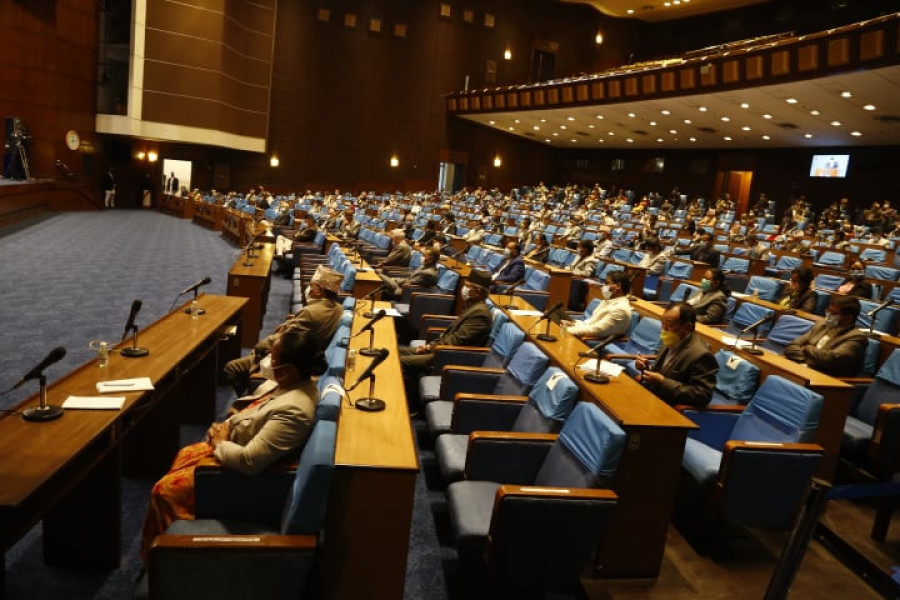Editorial
From the wrong playbook
The government dare not tamper with constitutional provisions and rule of law.
The Deuba government’s decision to register a bill to amend the Constitutional Council Act at the National Assembly has again raised questions about its intention to follow democratic governance practices. The bill proposed by the Deuba government ironically retains the provisions in the ordinance presented by the erstwhile Oli government that the Congress party which heads the current government had vehemently opposed when it was in opposition. But the current government has shown no hesitation in taking the same unconstitutional steps. In taking these steps, the government’s actions show that it is no different from the previous one in disregarding the rule of law.
What the Deuba government thinks of the rule of law became clear at the outset when it issued an ordinance to amend the Political Parties Act to ease the process of splitting political parties, which precipitated the break-up of the CPN-UML and eventually brought the Madhav Nepal faction into the current coalition. The habit of Nepali politicians crying foul when in the opposition, and when in power, acting exactly in the same unconstitutional fashion which they had formerly condemned, completely disregarding the rule of the democratic governance system, is a blight on the very essence of governance.
The practice of issuing ordinances in the first place has been grossly abused by politicians lately. The essence of an ordinance is to allow the government to pass critical laws when Parliament is not in session on matters of emergency or unforeseen circumstances. It is not a tool to be used as per the whims and fancies of politicians to promote kleptocracy and cronyism as has been done in recent years to fulfil their vested political agendas.
Democratic provisions have been placed in the constitution for a purpose. It allows for a system of checks and balances where power is fairly distributed, and no one person or group is in a position to wrest control of governance. Hence it is fair for political commentators and other experts to express concern over the government’s recent decision to register a bill to amend the Constitutional Council Act, which undoubtedly is designed to allow the current government to concentrate power in its hands and eventually render constitutional provisions dysfunctional and diminish the efforts of democratic governance.
The government has sought to defend its move to present a bill to amend the Constitutional Council Act, but its interests are similar to those of the Oli government when it had proposed its own ordinance for the same purpose. Whatever spin it tries to put on the bill, there is no reason not to cry foul now for those that sense the dangers of centralisation of power. The only justifiable step now would be for the Deuba government to immediately withdraw the bill to amend the Constitutional Council Act, and follow the spirit of the constitution and the rule of law.




 18.12°C Kathmandu
18.12°C Kathmandu














